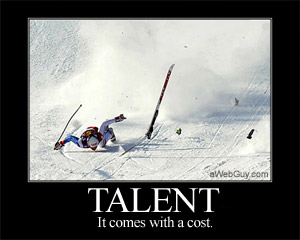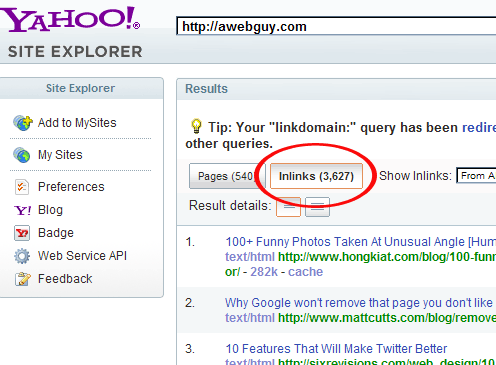
Here are answers to some of the most pressing questions about SEO that are asked of SEO professionals. I am not ranking these questions in the order of urgency or frequency, but these are some of the most common things I hear when people call me, search the Internet and find me, or meet me and ask what I do.
SEO Question One: What is SEO?
Answer: I suppose I should start with answering the big question of “What is SEO?”
SEO is both a noun and a verb, kind of like Google. It can mean search engine optimization or search engine optimizer. You can usually tell the difference based on the usage.
It involves many aspects of improving a website’s ranking in search engines, and thus increasing website exposure. However, it goes a lot deeper than that. Being listed at the top of search results does not always mean a visitor to your website, especially if you are not listed for the right search terms. Finding the right search terms (keyword phrases) is very important, and often involves many lateral keywords.
SEO has a lot to do with converting more searches into clicks, but clicks alone do not always mean profit. So it also has a whole lot to do with converting those clicks into an action, such as a purchase or a new business lead.
SEO Question Two: How Much Does SEO Cost, and Why?
Answer: I get this question more than perhaps any other, and it comes in many variations. I get it in person, on the phone, and I get it in searches for “SEO hourly rates“. If you Google that term or a number of others like it, you will understand why I know this is a common question. You will find an article I wrote a while back titled “SEO and Web Development Hourly Rates” The funny part is that really great SEO is not done based on an hourly rate, and simply asking “how much does SEO cost“ is not a well-qualified question.
I know it is a scary thing to imagine waving goodbye to money. If a person can look at this without the hair on the back of their neck standing up and consider it for a moment, the better question is actually “how much will a lack of SEO cost?“ Sure, that just sounds like a guy trying to sell you stuff, but I am serious. What happens when you do it wrong? Doing SEO wrong or not doing it at all is what becomes really costly.
I realize that the real question people want to know about SEO is how much they will have to invest in order to get the results they want. The problem is that at the same time, they often do not really have a finger on what results they are after. “More business” is not a good enough answer to the question. The best answer for your individual case requires planning, and planning means developing better questions with better answers.
If you just want three more sales, it will probably not require a large upfront investment. On the other hand, if you are selling custom purple pajamas for botfly larvae, all the SEO in the world may not help you much. Neither of these represent a good plan, and if you start without a plan, you will end without a plan. Here is an article to help you consider your planning, and why you don’t just want to be along for the ride: “Business Evolution and Crash Test Dummies“.
What is needed and how much you should spend will be different for each individual business case. The answer that will provide the best results will usually be uncomfortable. My short answer is usually “bring your lunch money” because if the SEO is done well, every additional dollar you invest will produce a greater return.
Does it cost, really? I thought it was supposed to pay money, not cost money. I wonder what the cost is if you don’t do it? My really super smart-ass answer to the number one most important factor in your business success (your marketing) would be “how well do you want the job done?”
In answer to the last part of the cost question (why), I would like to refer you to an article I wrote only yesterday titled “Where Does Marketing Talent Come From?”
SEO Question Three: Can You Reduce the Upfront Cost?
Answer: Yes, there are ways to minimize the upfront cost of SEO, and the best one is with a contingency SEOcontract which allows the provider to earn money based on performance. Be mindful that there is generally still an upfront cost involved. After all, there is often a lot of risk mitigation for the SEO in making sure your company and your products are market-ready and something they want to partner with.
When you contact a good SEO, you should be ready to afford the cost. Again, this is an investment in your business and you are seeking a professional service to build your business. If you ever wonder why a good SEO’s phone keeps breaking up and the call drops, consider this: If you are asking them to deliver you the moon but to do it “cheap”, this could very well be the reason.
SEO Question Four: Can SEO Help a Small Local Company?
Answer: Yes, it can also help a small local company stop being small and local if they choose. Can it help a small and broke company? Well, I like to remember a term I learned in grammar school: survival of the fittest. If your company is already too broke to sustain the basic essentials of marketing, it may be too late. I said it may be too late. I think it is still better to go down fighting than to just roll over. SEO is likely the best chance you have.
SEO Question Five: How Long Does SEO Take?
Answer: This is another one of those sticky questions with a whole lot of answers. I generally expect to see results the moment I click “publish”. Once you have a site that is worthwhile to users, a squillion good incoming links, and a good reputation with Google, things can happen very quickly. A better answer may be how long it will take you to make the decision to take action. It is like planting a tree. If you want shade, it is best that you did it a long time ago. In lieu of that, I will let you answer the best time to plant it.
SEO Question Six: How Long Does SEO Last?
Answer: I have written articles for competitive keyword phrases that are still at the top of searches since nearly a decade ago. Things change, but the search listing aspects of SEO are generally designed to last. Other areas of SEO work are also designed with longevity, such as an emphasized call to action and other matters of Website usability. If you really want an understanding of how long SEO can last, I invite you to read “Can You Value Each Blog Post at $10,000?” where I explain it more clearly.
A pay-per-click campaign will last until you stop paying for it.
SEO Question Seven: How Can I Measure SEO Success?
Answer: The short and sweet answer should be “in your wallet” but it is a bit more than that. You can measure success of specific traffic results and user actions very easily with statistics from tools like Google Analyticss and Clicky Web Analytics. If you can get beyond the big task of planting the seedling of good SEO, the results can mean a whole lot more than just how much more money you have. It can mean that your business is on a path to a sustainable marketing platform where every time you have something to say, your content will rank much more easily in search engines. So your measurement should extend beyond today alone, but also include a longer term look at where your business will be down the road.
SEO Question Eight: Isn’t SEO Mostly Just Title Tags, H1 Tags, and Meta Tags?
Answer: I want to be nice about this one, because I know that the SEO industry has talked a lot about these things and it may seem there is a lot of emphasis on these items. I will touch on each item individually, but just for a moment. Then I will explain how little they do in the big picture.
Title tags are important to SEO, because they are the top-level on-page item to tell a search engine what the page is about. If the content matches the title, and all other things are perfect, you may have a win. There are clearly a lot of other factors. Otherwise, some of those pages titled “Home” (and sadly there are millions titled just “Home”, because somebody got lazy) would show up somewhere. Instead, when you search for “Home”, you find “The Home Depot”, and “Lowe’s Home Improvement”.
H1 tags hold importance due to the proper structure of a page. They are like a headline on a newspaper and they are the starting point of an article. The H1 tag tells the overall subject of the page, and ideally the rest of the page matches the subject. There are a lot of SEO who will argue until they are blue in the face about the subject of H1, and sometimes rightfully so, but if you want to know more just Google it. You will find an article I wrote years ago right on top. Here is my article titled “H1 Tags Improve Search Engine Placement” and here is the Google Search for H1 tags. You be the judge, but please do not assume it is there just because I used the H1 tag.
Meta tags? Don’t even get me started about meta tags. This is like a joke that spread widely back in the 1990’s to make SEO sound smart. Kidding! Actually, they once had some bearing on SEO, but many search engines do not look at meta tags as a factor any more than the haircut of your pet chihuahua.
The Big Picture: If these simple items of title tags, H1 tags and meta tags did the trick, don’t you think the Internet would get pretty messed up with totally irrelevant things in the way every time you search for something? It takes a whole lot more. I mean, wouldn’t you rank yourself a lot higher for “2010 Olympics” or “Brittany Spears” if that was the case?
SEO Question Nine: Are There Any Guarantees to SEO?
Answer: Yes, there are a few guarantees with SEO, and they are not all lies, either. First, I can guarantee you that if you do nothing, you will get nothing. Some SEO will provide outrageous guarantees, and I hope you do not fall for it. One type of reasonable guarantee is based on additional work until a set objective is met. The most reasonable SEO guarantee is one that the professional you hired will work hard and work smart to meet your objectives. If you ask for guarantees, you will usually pay for guarantees. In many cases the customers pay for them the hard way … by believing something that is not true.
SEO Question Ten: Can’t I Just Do My Own Google Adwords?
Answer: Yes, absolutely! You can do it all yourself. Just be aware that you have another job to do … running your business. If you think you can do the job as well as the professional who makes it their career, I just hope you don’t make the same kind of decision about professional football or dentistry. You are likely to get hurt.
SEO Question Eleven: Can’t I Just Read Your Blog and Do It Myself?
Answer: Sure. Subscribe here. If you need more help, don’t be too proud to ask.

